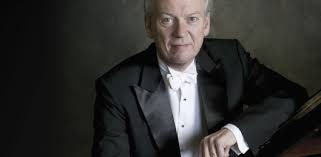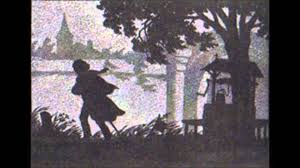Brighton Dome, Sunday 11 February 2018
There was a lot of lilting 3/4 time and enough tunes to set you humming all week in this enjoyable concert.
First came a slightly exaggerated – but none the worse for that – rendering of Schubert’s 8th Symphony – the Unfinished. Howard Shelley gave us a lingering horn, exciting sforzandi and lots of timp in the first movement, which he ended with a very measured, almost mannered, tempo. The second movement stressed the tip-toeing pizzicato and legato melody nicely. It was a very pleasing start to the concert which left me reflecting – for the thousandth time – that it’s an insult to Schubert’s genius to dub this his Unfinished symphony. I reckon he decided it was perfect just the way it is and he was right.
Howard Shelley is, as ever, fascinating to watch when he multi-tasks by conducting from the key board – iPad on the stand and blue toothed pedal to ‘turn’ the digital pages. On this occasion for Mendelssohn’s first piano concerto he had the lid off the piano – right off too – so that the sound was louder and more dominant than it would be for work by, say, Mozart or Beethoven. It’s a charming concerto and it’s a pity we don’t hear it more often. The sparkling dance quality of the third movement, for instance, was melodiously uplifting in this performance.
And so to Dvorak’s 6th Symphony with its delightful opening movement – 3/4 time again like the Schubert – in which Shelley even-handedly ensured that all the musical conversation is articulated as Dvorak sails on from melody to melody. In particular, I liked the trombone, flute and horn work here. Then came the lyrical beauty of the slow movement (how Dvorak loved lower strings!) which Shelley leaned on to good effect. The incisive string work taken at an impressive tempo in the third movement and the colourful, rousing finale rounded it off with panache.
All in all it was another fine Brighton Philharmonic concert. It was a pity, however, that the cold weather seemed to have led to more empty seats than usual. People who opted not to come missed a worthwhile afternoon of music.
Susan Elkin


